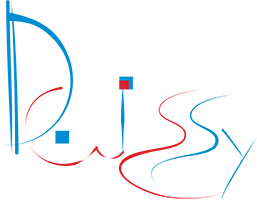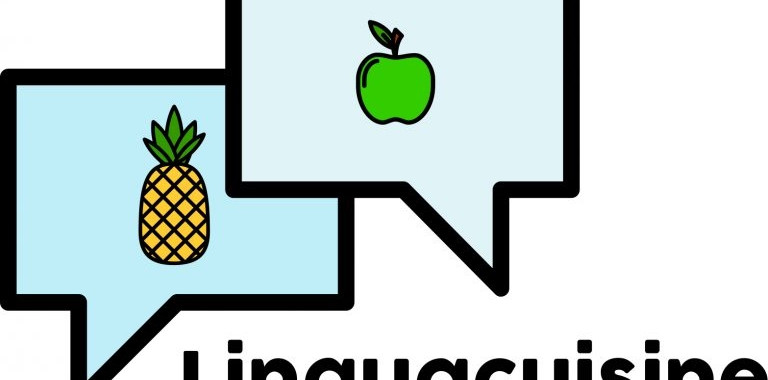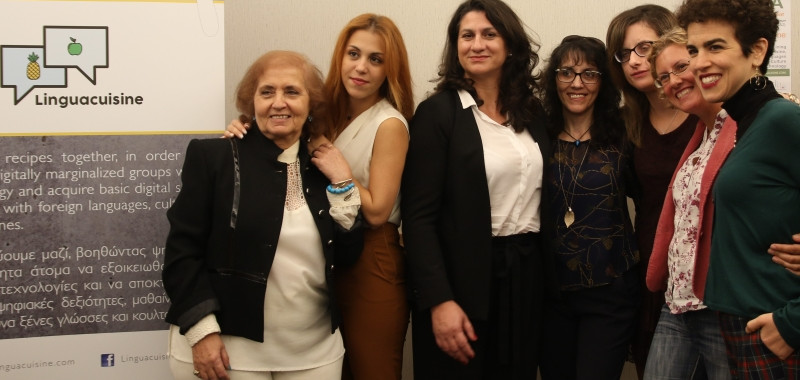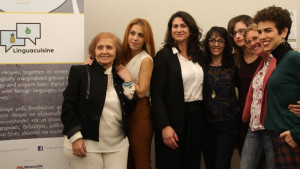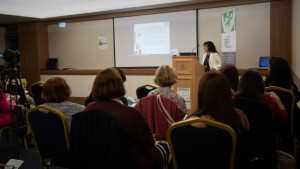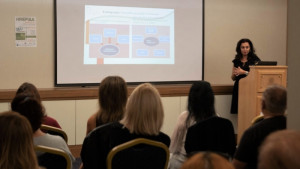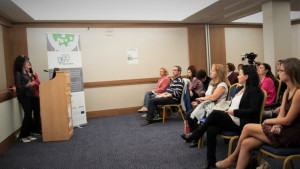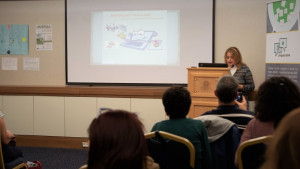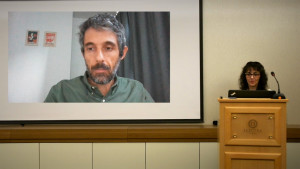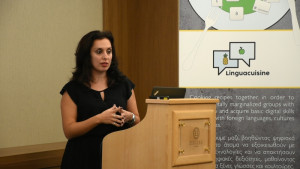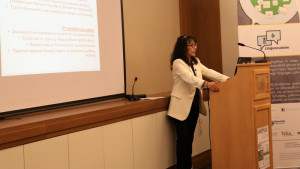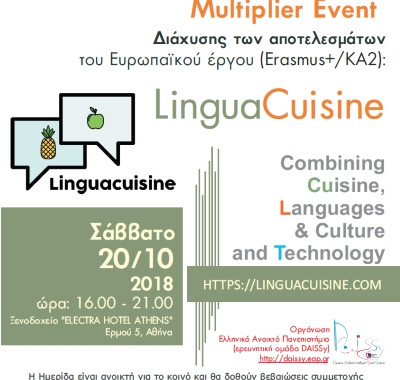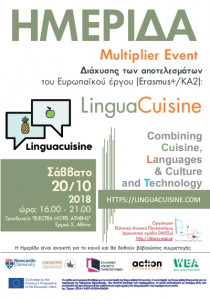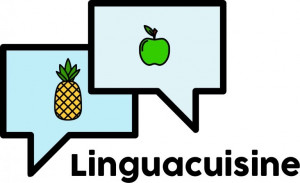 The LinguaChef Prize will be awarded to the person who uploads the best language learning recipe using the Linguacuisine recipe author software during the period 14 June to 31 August 2019. The prize consists of a payment of £200 plus a LinguaChef Gold Certificate. There are 2 runner-up prizes with £50 each plus a LinguaChef Silver Certificate. All will feature on the front page of all Linguacuisine media and the recipes will be promoted around the world on the website.
The LinguaChef Prize will be awarded to the person who uploads the best language learning recipe using the Linguacuisine recipe author software during the period 14 June to 31 August 2019. The prize consists of a payment of £200 plus a LinguaChef Gold Certificate. There are 2 runner-up prizes with £50 each plus a LinguaChef Silver Certificate. All will feature on the front page of all Linguacuisine media and the recipes will be promoted around the world on the website.
The language learning recipe can involve learning any language and any recipe. There is no cost to making an entry.
To enter for the LinguaChef prize:
- Watch the video tutorial on how to create your own language learning recipe on https://linguacuisine.com/tutorials/
- Read the advice on http://linguacuisine.com:8000/ by pressing the ? icon on the main page.
- For an example of a good language learning recipe, try Italian Involtini.
- You need a googlemail account to use the recipe author software.
- Gather your ingredients and cooking equipment as well as your recording equipment, cook the meal and record your recipe.
- Enter your video and audio files, photos and text using the recipe author software to form a complete recipe.
- If you wish, you can add extra media and text under the titles ‘full length recipe’, ‘culture and history’, ‘language’ and ‘cuisine’ to provide additional learning materials in relation to your recipe.
- Tick ‘publish’ on the main page when the recipe is finished.
- When you see your recipe appear on the recipe player http://linguacuisine.com:7000/ this means that you have successfully uploaded your recipe. It may take a day to upload onto the server.
- Then email us on linguacuisine@gmail.com to say you wish to enter the 2019 LinguaChef contest. Give us a) your name b) the name and language of your recipe c) your preferred email address for contact.
Entries will be judged during September 2019 and the winner and runner-up announced on 30 September 2019.
The criteria for evaluating the language learning recipes will be:
- How easy is the recipe for learners of the language to follow and to create the dish?
- To what extent does the recipe help users learn aspects of the language, culture and cuisine?
- What is the quality of the video and audio files, photos and text in relation to learning this language, culture and cuisine?
Entry to the competition is open to all and is free. However, staff of Newcastle University, Action Foundation and the Workers Educational Association may not enter or contribute to any entries.
Information is on https://linguacuisine.com/linguachef/
